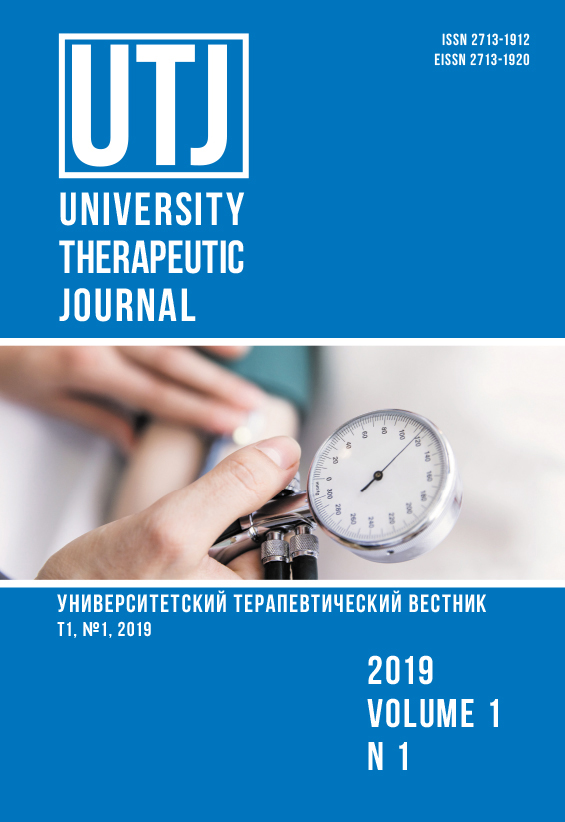ADHERENCE TO TREATMENT OF PATIENTS WITH METABOLIC SYNDROME
Abstract
The compliance of patients is significantly reduced in conditions of comorbidity. According to available information, adherence to treatment in individuals with arterial hypertension, dyslipidemia, and diabetes mellitus is low. Thus, it is logical to assume that their combination also negatively affects the compliance of patients, which in turn leads to difficulties in the treatment of metabolic syndrome (MtS). At the moment, the volume of research on this aspect is insufficient and requires study. Objective: to determine the nature of the influence of MtS components and the presence of anxiety on compliance. Objective: to determine the nature of the influence of MS components and the presence of anxiety on compliance. Materials and methods: 108 patients were examined, the average age of which was 50.24±13.74 years, who received therapy in accordance with the national clinical guidelines for the treatment of obesity and associated diseases of 2017. Commitment was assessed using the 4-item Morisky Medication Adherence Scale (MMAS-4), and the presence and severity of anxiety were determined using the validated The Hospital Anxiety and Depression Scale (HADS) questionnaire. Results: According to the MMAS-4 questionnaire, the median value of compliance in the cohort was 2 (1; 3) points. A comparative analysis of the components of MS showed the predominance of cases of increased low density lipoprotein (LDL) in patients with low adherence (44.4% versus 27.78% of cases, p = 0.0479). The correlation analysis revealed a negative dependence of LDL concentration on the degree of adherence to treatment: r = -0.253578 (p = 0.0081). There were also no statistically significant differences in the frequency of detection of anxiety symptoms in both groups, which casts doubt on the legitimacy of identifying anxiety as a factor affecting the adherence of patients with MtS. Conclusions: the results of the study confirm the presence of a low level of adherence to therapy in individuals with MtS, which is associated with the presence of atherogenic dyslipidemia. An integral part of the treatment of this category of patients should be the creation of conditions to achieve an increase in their compliance.


